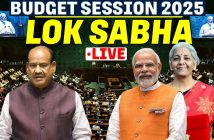Inflation a concern and 25 bps policy rate hike expected: Experts With core inflation not subdued, the Reserve Bank of India’s (RBI) Monetary Policy Committee (MPC) on Wednesday increased the repo rate by 25 basis points (bps) to 6.5 per cent as per the general expectation of experts.
As a matter of fact, RBI Governor Shaktikanta Das, announcing the upward revision in the repo rate, said the outlook for inflation is mixed.
“While prospects for the rabi crop have improved, especially for wheat and oilseeds, risks from adverse weather events remain. The global commodity price outlook, including crude oil, is subject to uncertainties on demand prospects as well as from risks of supply disruptions due to geopolitical tensions. Commodity prices are expected to face upward pressures with the easing of Covid-related mobility restrictions in some parts of the world,” Das said.
The ongoing pass-through of input costs to output prices, especially in services, could continue to exert pressures on core inflation, he added.
Reacting to the repo rate increase, Ranjani Sinha, Chief Economist, CARE Ratings told IANS: “While RBI has hiked the policy interest rate by 25 bps in line with market expectations, they have not indicated an end to rate hiking cycle.”
Given the uncertain global macro environment and risk of re-emergence of commodity price pressure, it is prudent that the central bank has kept the option open for another rate hike if required. Hence, they have continued with the stance of “withdrawal of accommodation”, while reiterating its concern on sticky core inflation.
“We expect average CPI inflation to moderate to 5.1 per cent in FY24, lower than the RBI’s projection of 5.3 per cent. Our projection for GDP growth for FY24 at 6.1 per cennt is again lower than the RBI’s projection of 6.4 per cent. With the effect of rate hikes so far playing out in the economy in the months to come, there may not be the need for further rate hike in the next meeting,” Sinha added.
Suman Chowdhury, Chief Analytical Officer, Acuite Ratings & Research, said there is no indication of any pause in the rate hike and the likelihood of further moderate hikes in the repo rate remains, depending on the upcoming data prints.
According to Chowdhury, the liquidity in the system is expected to remain slightly in surplus with most liquidity enhancement measures of the pandemic period having been withdrawn. There is a risk of an increase in bond yields if liquidity continues to tighten further due to continuing credit demand.
A.K. Goel, Chairman, Indian Banks’ Association (IBA) & Managing Director & CEO, Punjab National Bank, said the RBI has given considerable emphasis on high core inflation pressures and assumes it as a major risk to the growth outlook.
“Looking at the inflation projection of RBI for FY 24 at 5.3 per cent with all four quarter readings well above the lower end of the 4+/-6 per cent band, it is not surprising that RBI has given importance to keep inflation under check,” Goel added.
Draft guidelines on the penal charges levied by the RBI regulated entities could initiate uniform processes across the players so that the process is transparent and could benefit the customers, Goel said.
The policy tone was hawkish as the RBI recognised that they are still away from achieving their objective of durable disinflation. In terms of the inflation risks, the RBI highlighted the elevated nature of core inflation and continuing global risks that could push up domestic inflation going forward, said Abheek Barua, Chief Economist and Executive Vice President, HDFC Bank.
According to Madhavi Arora, Lead Economist, Emkay Global Financial Service, the fast-evolving world order has meant that data-led policy repricing keeps global markets on their toes, and they keep swinging on the timing and extent of policy pivots.
“However, on net basis, even as global tightening is still expected, the anticipation of slowing pace of hikes has eased financial conditions somewhat. This hints that EM Asia central banks, including RBI, could breathe easier,” Arora said.
According to Edelweiss Mutual Fund, the benchmark 10-year government bond yield hardened a bit as the RBI Governor refrained from signalling the end of the rate-hiking cycle or changing the policy stance to neutral.


